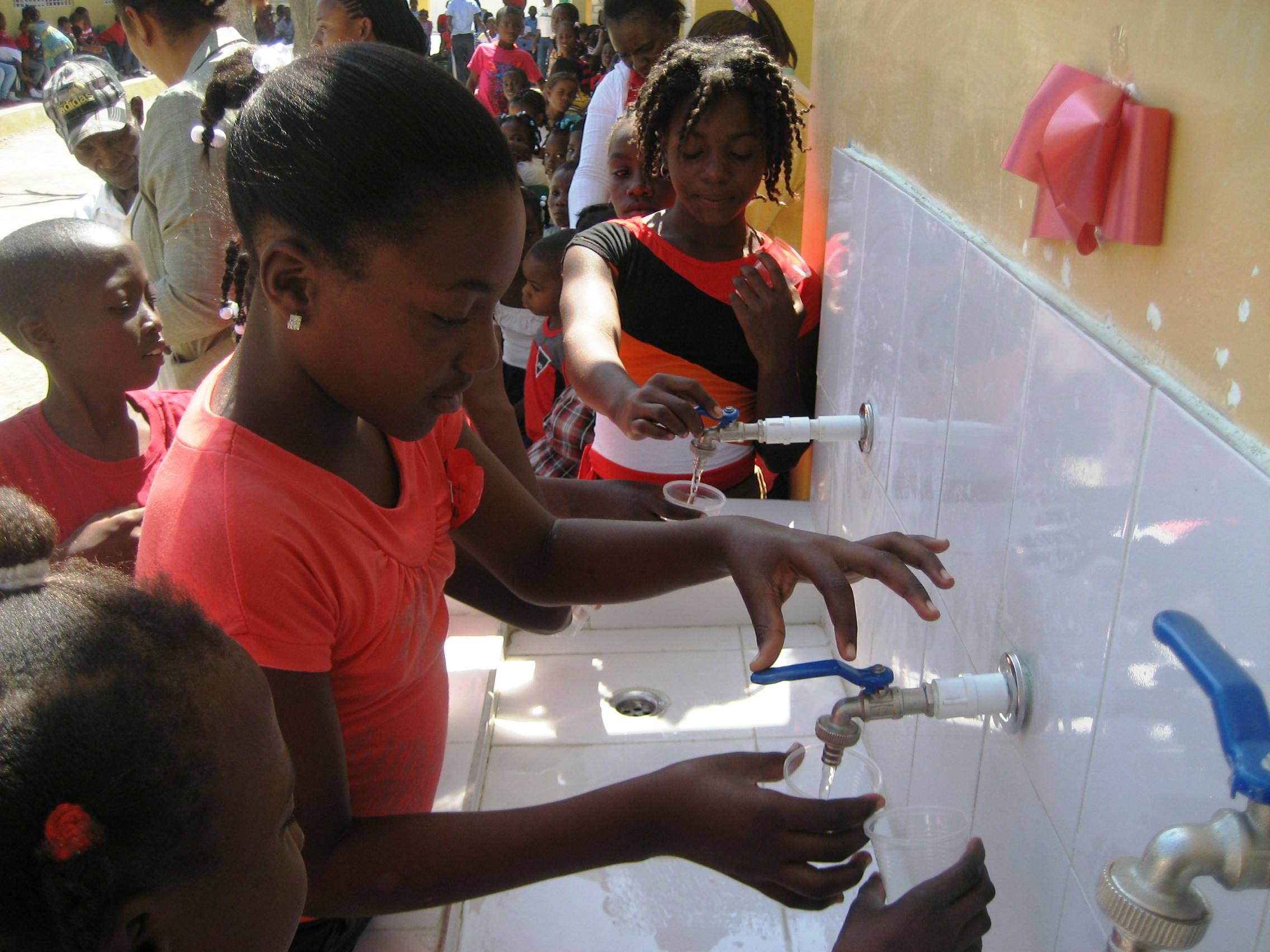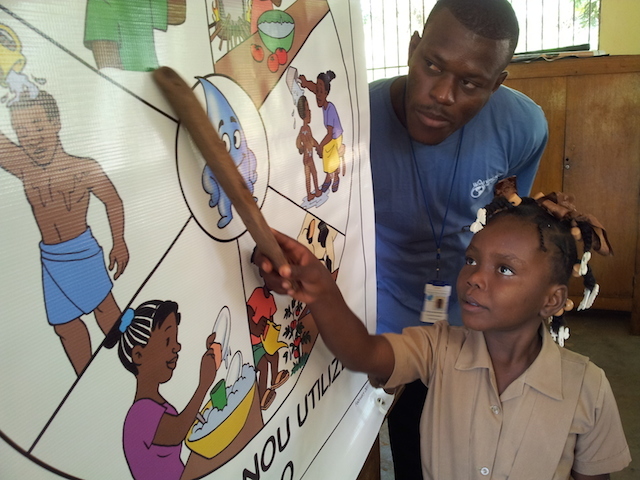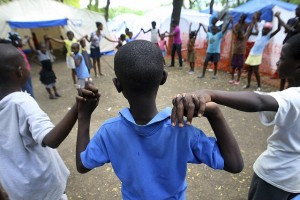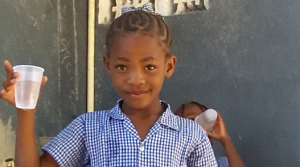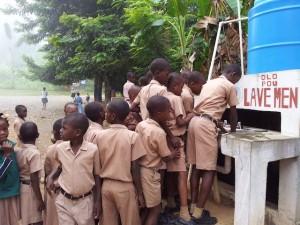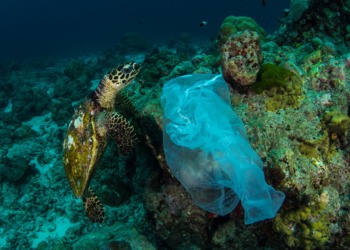To most people, the basic elements of hygiene and sanitation are common knowledge, but in places where water is scarce and infection is high, the absence of this knowledge can mean life or death. Since 2009, World Water Relief (WWR) has committed themselves to educating and improving the lives of people who lack water and essential information regarding it. This interview with program director, Steffani Fields, shares the mission of WWR and the hopes they have for the communities they work in.
Q. In your own words, how do you describe World Water Relief’s mission?
The mission of World Water Relief (WWR) is to improve the health of people in the Dominican Republic and Haiti through access to quality, potable water and WASH (water, sanitation & hygiene) education. The long-term sustainability of this mission is achieved by our 10-year commitment to continued maintenance and education for each program (usually provided to students in community schools). The goal is to alter the culture of health and hygiene so that at the end of 10 years each program is 100% maintained and taught by its local recipients.
Q.What inspired you to get involved with World Water Relief?
I was inspired to work for WWR because of its simple, yet effective model of sustainability. I believe that it can take a decade to improve the knowledge and understanding of hygiene and sanitation among populations and that it first takes relationships and trust to change the habits of people. Through the WWR model our local staff and myself are on the ground every day of the year, working with our recipient students and their communities, not only building life-long relationships, but also improving lifestyle habits and the health of future generations.
Q.What was your initial reaction to seeing the conditions of Haiti and Nepal for the first time after the earthquakes hit?
I have yet to travel to Nepal but have worked in Haiti since 2000. This has allowed me to see Haiti over the course of 15 years. Before the January 2010 earthquake, I never imagined that the infrastructure and quality of life in a city such as Port-au-Prince could be any worse. I spent 3 months working in Haiti shortly after the quake and each time I entered the heart of Port-au-Prince, it brought tears to my eyes and at the very same time, gave me a sense of amazement at the resilience and spirit of the Haitian people as they came together daily, working to rise up from the misery the earthquake set in their paths.
Q.In your opinion, what still needs to be done to help the people who are suffering in these countries?
The world needs to give Haiti and those who are working together to improve life in Haiti, the time it will take to properly rebuild and improve all that was lost. Although we can’t bring back lost loved-ones, we can work together to teach the people of Haiti how to improve their lives through better education that will lead to increased skilled laborers and professionals which can then lead to improved health, infrastructure, education, commerce, agricultural practices, etc. The foreign nations who so generously donated to Haiti on behalf of their citizens after the 2010 earthquake, must realize that it takes considerable time to repair and improve countries shattered by disaster, such as an earthquake. It also takes the cooperation of the national government and donor nations, through clear cultural understanding. We can’t fix a shattered population overnight and those of us working on the ground to improve the lives of those who lost so much must have their hearts and souls in the work and be prepared to push on until the Haitian population is able to sustain a better lifestyle without the help of others.
It takes proper education and training over the course of at least a generation, to effectively improve the health of students, their families and communities.
Q.Could you please explain the types of water relief systems WWR implements and how they operate?
WWR uses the PURA UVBB-3 ultraviolet water treatment system that purifies water through the combined actions of 3 separate filters. It is capable of filtering 15 gallons of water per minute. The UV lamp has the ability to destroy microorganisms that can live in water, such as viruses, bacteria, fungi, algae and protozoa. Before treated water is passed into the UV filter, it first travels through a string-wound sediment filter that removes suspended solids that may shield the microbes and make it hard to obtain sufficient UV exposure. The water then passes through an activated carbon filter that removes unpleasant tastes and odor, before it’s final destination to the UV filter where harmful microorganisms are killed.
Each WWR program includes the installation of a PURA UVBB-3 system, water pump, pressure tank, water storage tank/s and 1 or 2 drinking and hand-washing stations.
Q.Why is education so essential to WWR’s WASH program?
To ensure the true sustainability of our program, the recipient school and community must be taught to first understand the importance of clean, safe water and secondly how in combination with proper sanitation and hygiene habits they can quite simply improve health for generations into the future. As an American, I often ponder how we take our knowledge of the importance of hygiene and sanitation for granted. We are taught how to wash our hands and protect ourselves from germs and bacteria at an early age, from the time we enter school and often before. Imagine growing up in a culture where the principals of WASH were never taught. It takes proper education and training over the course of at least a generation, to effectively improve the health of students, their families and communities. Not only does WWR teach the principals of WASH to each of it’s program recipients, but it also trains the staff and community members to properly maintain and operate their own filtration systems independent of WWR over the course of our 10-year commitment.
Q.What lasting impact do you hope your projects will have?
Through our WASH-in-Schools program we create a “water club” at each school, composed of 14 students who are taught to represent WWR as peer teachers of the principals of WASH. Our education team meets with each group throughout the summer months and teaches them not only about hygiene and sanitation, but also the care and operation of our filtration system. These kids then go on to assist WWR in teaching their schools, families and communities these skills and habits into the future. As the years progress, I aspire to see an army of WASH experts grow, spread and transform the health of each community we serve through proper WASH habits and the knowledge of safe water. We are currently evaluating our effect on the health of the populations we serve and I hope that over the course of time we will witness and document the improved health and hygiene/sanitation habits of the people in the schools and communities we work.
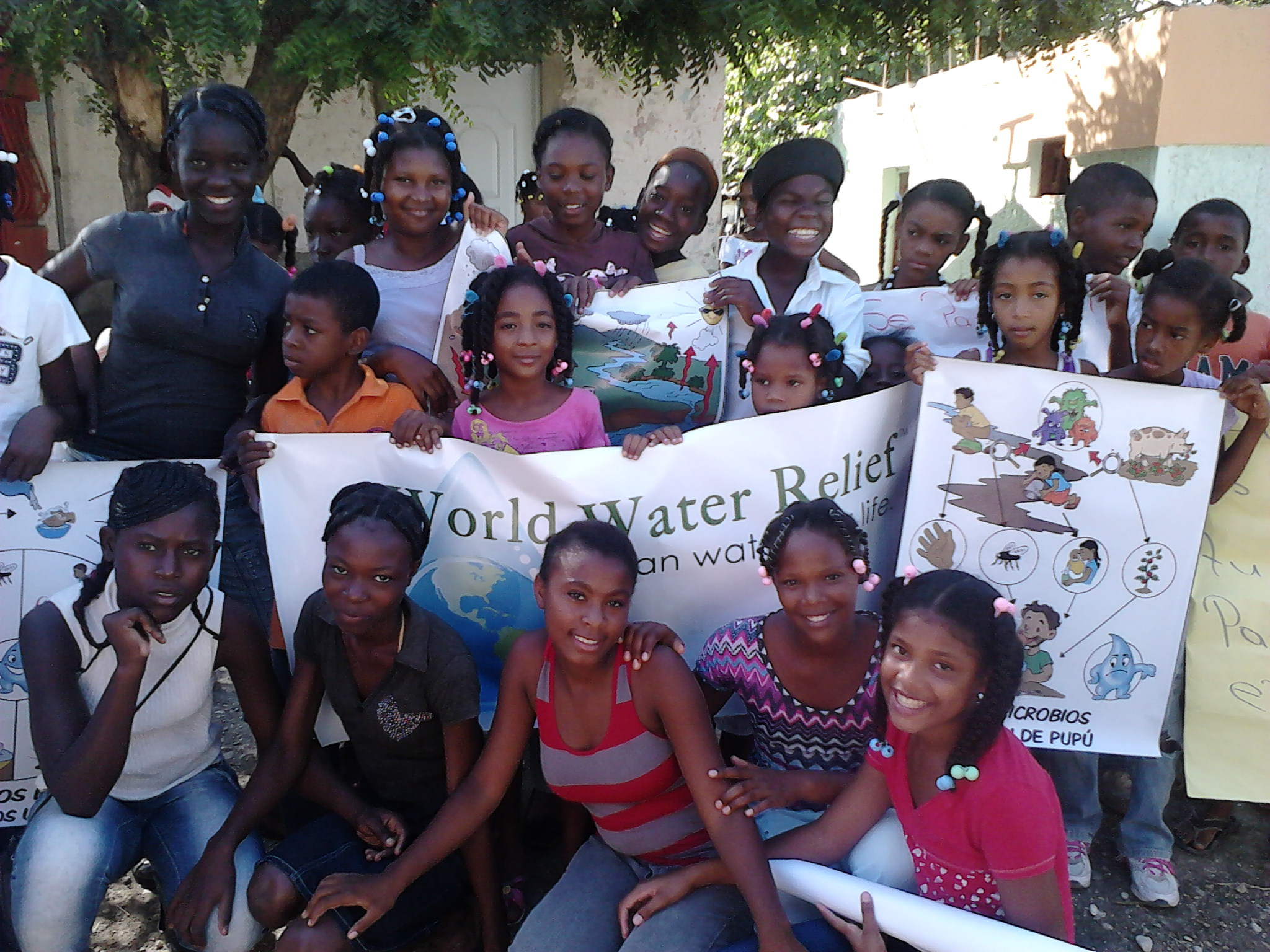
Q.What has surprised you about working with WWR?
I am surprised at how effectively a small, grass-roots organization can improve so many lives with what most Americans take for granted; an education and understanding of good hygiene, sanitation and purified water. The simple act of hand washing can literally save lives.
Q.What about World Water Relief gives you hope?
The World Water Relief sustainability model. Our 10-year commitment to maintain our equipment, instruct recipients on its use and teach the principals of proper hygiene and sanitation allows us the time to effectively prepare the recipients of each project for the future care of their own WASH-in-Schools program.
World Water Relief Instagram


